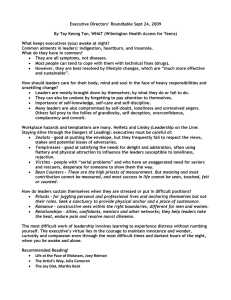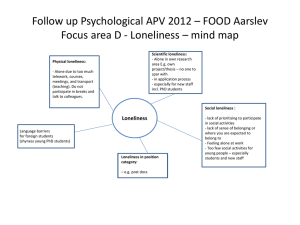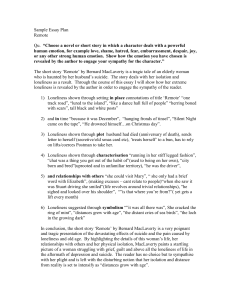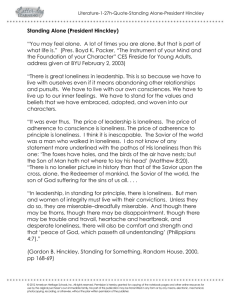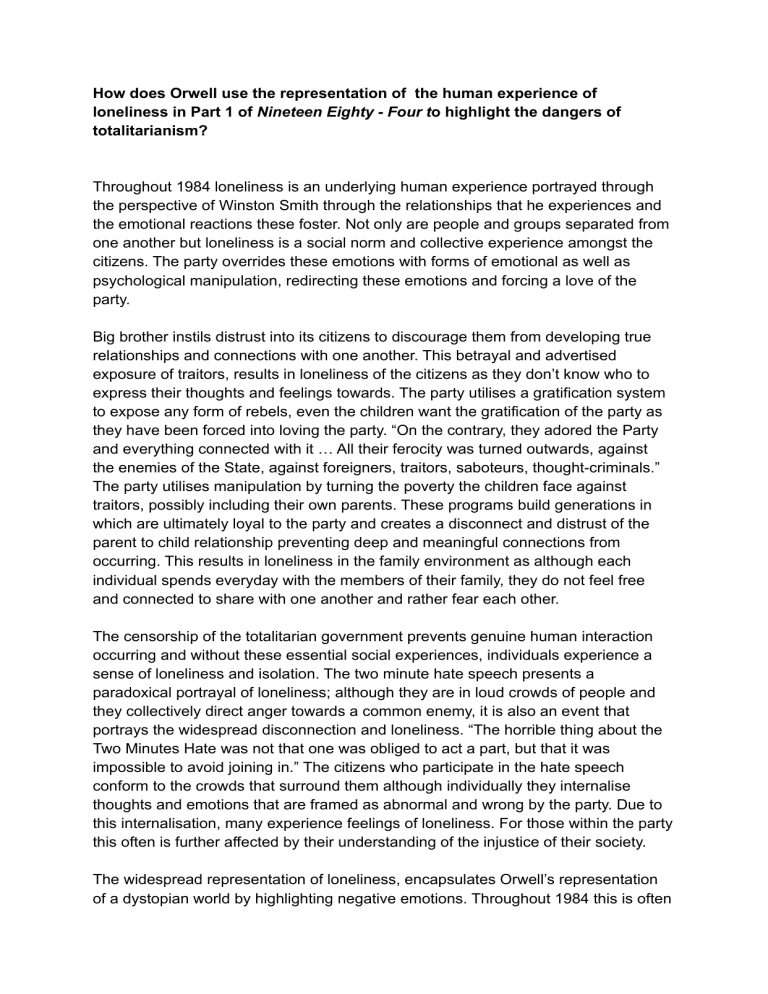
How does Orwell use the representation of the human experience of loneliness in Part 1 of Nineteen Eighty - Four to highlight the dangers of totalitarianism? Throughout 1984 loneliness is an underlying human experience portrayed through the perspective of Winston Smith through the relationships that he experiences and the emotional reactions these foster. Not only are people and groups separated from one another but loneliness is a social norm and collective experience amongst the citizens. The party overrides these emotions with forms of emotional as well as psychological manipulation, redirecting these emotions and forcing a love of the party. Big brother instils distrust into its citizens to discourage them from developing true relationships and connections with one another. This betrayal and advertised exposure of traitors, results in loneliness of the citizens as they don’t know who to express their thoughts and feelings towards. The party utilises a gratification system to expose any form of rebels, even the children want the gratification of the party as they have been forced into loving the party. “On the contrary, they adored the Party and everything connected with it … All their ferocity was turned outwards, against the enemies of the State, against foreigners, traitors, saboteurs, thought-criminals.” The party utilises manipulation by turning the poverty the children face against traitors, possibly including their own parents. These programs build generations in which are ultimately loyal to the party and creates a disconnect and distrust of the parent to child relationship preventing deep and meaningful connections from occurring. This results in loneliness in the family environment as although each individual spends everyday with the members of their family, they do not feel free and connected to share with one another and rather fear each other. The censorship of the totalitarian government prevents genuine human interaction occurring and without these essential social experiences, individuals experience a sense of loneliness and isolation. The two minute hate speech presents a paradoxical portrayal of loneliness; although they are in loud crowds of people and they collectively direct anger towards a common enemy, it is also an event that portrays the widespread disconnection and loneliness. “The horrible thing about the Two Minutes Hate was not that one was obliged to act a part, but that it was impossible to avoid joining in.” The citizens who participate in the hate speech conform to the crowds that surround them although individually they internalise thoughts and emotions that are framed as abnormal and wrong by the party. Due to this internalisation, many experience feelings of loneliness. For those within the party this often is further affected by their understanding of the injustice of their society. The widespread representation of loneliness, encapsulates Orwell’s representation of a dystopian world by highlighting negative emotions. Throughout 1984 this is often portrayed through mass crowds and public situations as the society is constantly under surveillance and this represents the internalisation of true humanity.
